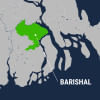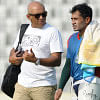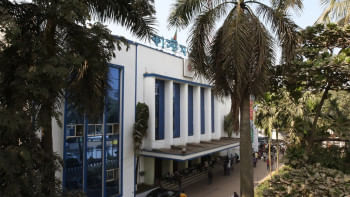2015 saw attack on freedom of expression
Freedom of expression came under severe attack in Bangladesh last year, Human Rights Watch said in its World Report 2016.
While extremist groups targeted secular bloggers and foreign aid workers, the government cracked down on the media and civil society activists, launched contempt of court proceedings, or prosecuted them under vague and overbroad laws, the US-based global rights watchdog said in a statement on its website yesterday.
The HRW reviewed human rights practices in more than 90 countries in the report.
In Bangladesh, civil society and the media faced harsh conditions (last year). Forty-nine people were prosecuted for expressing public support for a journalist's right to publish criticism of war crimes trials, according to the report.
”Media critical of the government continued to face closure, as editors and journalists faced charges and arrest.”
The HRW claimed that the incumbent government led by Prime Minister Sheikh Hasina became increasingly authoritarian, with security forces arresting key opposition leaders, often on trumped up charges, and state authorities refusing to prosecute security forces for serious violations, including torture, killings, and enforced disappearances.
The rights body, however, said in a positive development, efforts to shore up support for labour rights in the country's garment industry seemed to be having an impact, with a rise in the number of labour unions registered.
It also said several commuters were killed or injured during violence that erupted during some Bangladeshi opposition blockades of transport routes.
“There is no effective political opposition in parliament because the main parties chose not to participate, but now the Sheikh Hasina government seems determined to stem all dissenting voices -- even outside parliament,” said Brad Adams, Asia director of the HRW. “It is terrible that when bloggers were murdered, the government could only preach self-censorship.”
“Many of the problems we highlighted last year remain in place this year, and in some cases are much worse,” said Adams. “It has been a long time since the fundamental rights of expression, assembly, and religion have been recognised and protected in Bangladesh.”
In 2015, four bloggers with atheist sympathies were hacked to death by extremist groups. Other bloggers, writers, and publishers, whose names were published on a hit-list, went into hiding, concerned that government protection was either absent or at best inadequate, said the HRW.
A Shia procession and a Hindu temple faced serious attacks, with many wounded.
Members of the opposition Jamaat-e-Islami and Bangladesh Nationalist Party (BNP) said they feared arbitrary arrest or extrajudicial killings, added the report.

 For all latest news, follow The Daily Star's Google News channel.
For all latest news, follow The Daily Star's Google News channel. 








Comments